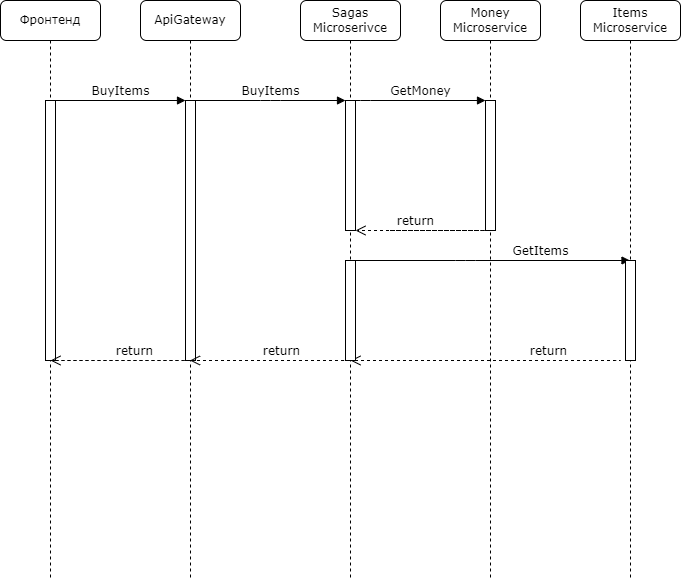“Restructuring” of IT monopolies, breaking cookie walls and open “gossoft” – fast reading in the cloud TL; DR

A photo – Guilherme cunha – CC BY-SA
Who wants to make the Internet “common” and why
Policymakers and regulators are increasingly responding to major data breaches and high-profile information security events. Most of them blame IT companies, but the more radical in the establishment go further. They are actively discussing industry monopolization and are gradually pushing society towards nationalizing the technology sector.
At least, this is the situation in Western countries. But who knows what will happen in the rest of the world if events around this issue begin to unfold rapidly in the United States or Europe, and whether the leaders of other countries want to take the experience of their colleagues into service.
The main thing that attracts the attention of supporters of the left movements, who have undertaken to divide IT, are well-known brands that are leaders in consumer market segments: search, browsers, office software, smartphones and ecommerce. They create a significant amount of jobs, conduct large-scale research, and practically all – open up a decent part of the development, but even with such a positive impact – they cause more and more excitement among regulators.
Some government officials do not limit themselves to information security issues and discuss the topic of “uncontrolled collection” of personal data. Left and left-wing radical movements in the West speak of the need to transform IT companies into cooperatives – utilitarian structures that would not bring super-profit and would be perceived as service organizations from the conventional sphere of housing and communal services. According to their idea, this approach will discourage the incentive to exploit personal data on a massive scale, reduce the likelihood of leaks and even “risks to national security.”
Surprisingly, there is already movement in this direction. Many states have amended the basic right of citizens to access the network, and the British Labor Party even proposed making it shareware. All of these plans can be paid for with new taxes and fees from internet and telecom corporations. As politicians discuss plans, local communities are beginning to roll out their networks, as has been done in Tennessee and southern Minnesota.
The topic is really interesting, options for the development of events are being discussed more and more actively, take at least our thread with comments on this material on Habré – we recommend that you study it.
Who wants to turn IT giants into cooperatives
While government officials are interested in telecom business, national infrastructure and issues of net neutrality, IT companies themselves come up with proposals for the protection of personal data. Due to the well-known scandal surrounding the US presidential election, Mark Zuckerberg is forced to talk more often about the problems of data leaks, but supporters of the left movement are pushing him and other leaders of large technology businesses to gradually fragment organizations.
Socialists believe that the management of such “blocs” should be delegated to democratically elected representatives who could act in the interests of citizens. There are such examples – the Green Taxi taxi service in Denver and the Fairmondo marketplace operating in the German markets are already operating in the cooperative format. Opponents of such a radical revision of the principles of regulation of the IT sector are describing its excessive bureaucratization. They believe that conflicts between political parties can hinder the technological development of society.
To get acquainted with the details of what is happening and look at the problem from different points of view, we suggest analyzing all 199 comments under this habrapost.
Why the EU is eradicating cookie walls
It seems that at one point the emergence of the GDPR was one of the central events on the news agenda. But this year made us forget about any complexities with ubiquitous cookies and banners. On the other hand, development in this area has not stopped. Earlier, the European Union court banned pre-filled checkboxes, but left the option not to ask permission for official things like support for sessions, plug-ins and downloading video content.
In turn, in early May, the European regulator recognized that cookie walls can violate the GDPR if such a banner blocks access to the site’s content and requires consent to the terms of data collection in order to continue browsing. The European Data Protection Board (EDPB) clarified that the decision should be voluntary, not forced.
While the authorities are working out recommendations on how to get users’ consent to PD processing, analysts are sounding the alarm. So, only 11.8% UK consent management platforms (CMPs) are GDPR compliant, although tens of thousands of websites use them.
Whether another legislative update will help them get better remains to be seen. But the matter is not limited to cookie-walls alone, it is still unknown how to deal with vague wording in the agreements on the work with personal data.
In the final part material We give examples of services for blocking unwanted cookies and move on to discussing the opinions of the audience (in the thread – 77 comments from hackers).
How Europe is moving to open source software for government agencies
The Munich question has been hanging in the air for over 15 years, but it is not at all about what a fan of popular news programs might imagine. We are talking about the transition of the public sector to open source and multi-million dollar savings for the city budget. When the activists just got down to this business, the city authorities went forward and launched the development of the LiMux distribution kit and open office software, but for one reason or another the process got stuck. Problems began with compatibility, while the open solution was used in parallel with the classic packages, then the mayor refused to participate in the new elections, and his replacement turned out to be a fan of “proprietary software”.
This year, the Social Democrats and the Green Party have given new life to the struggle for open software through the Shared Money, Shared Code campaign. It is not difficult to guess what its essence is. By the way, in Barcelona, open source is implemented with fewer problems, and local solutions are in demand in Dubai and Japan. Whether it will be possible to develop this theme in Europe remains to be seen.
What are the open operating systems for network equipment
Open source software for office work is not limited to. Large telecom companies and vendors continue to support independent developments in the field of open source infrastructure and related software. In the material, we talk about just a couple of such projects – “Network Sonic” on Linux and the Redis engine, which began to be used in the data centers of the system designers themselves, and an open Linux distribution included in the NOS (Network Operating System) stack from the SONiC project … If you are new to this topic, start your dive with our publications…
What else we have on our blog:
![]() Participation in open source projects can be beneficial for companies – why and what it gives
Participation in open source projects can be beneficial for companies – why and what it gives![]() The whole history of Linux. Part I: how it all began
The whole history of Linux. Part I: how it all began![]() The whole history of Linux. Part II: corporate twists and turns
The whole history of Linux. Part II: corporate twists and turns![]() History of Linux. Part III: new markets and old “enemies”
History of Linux. Part III: new markets and old “enemies” Benchmarks for Linux Servers
Benchmarks for Linux Servers




